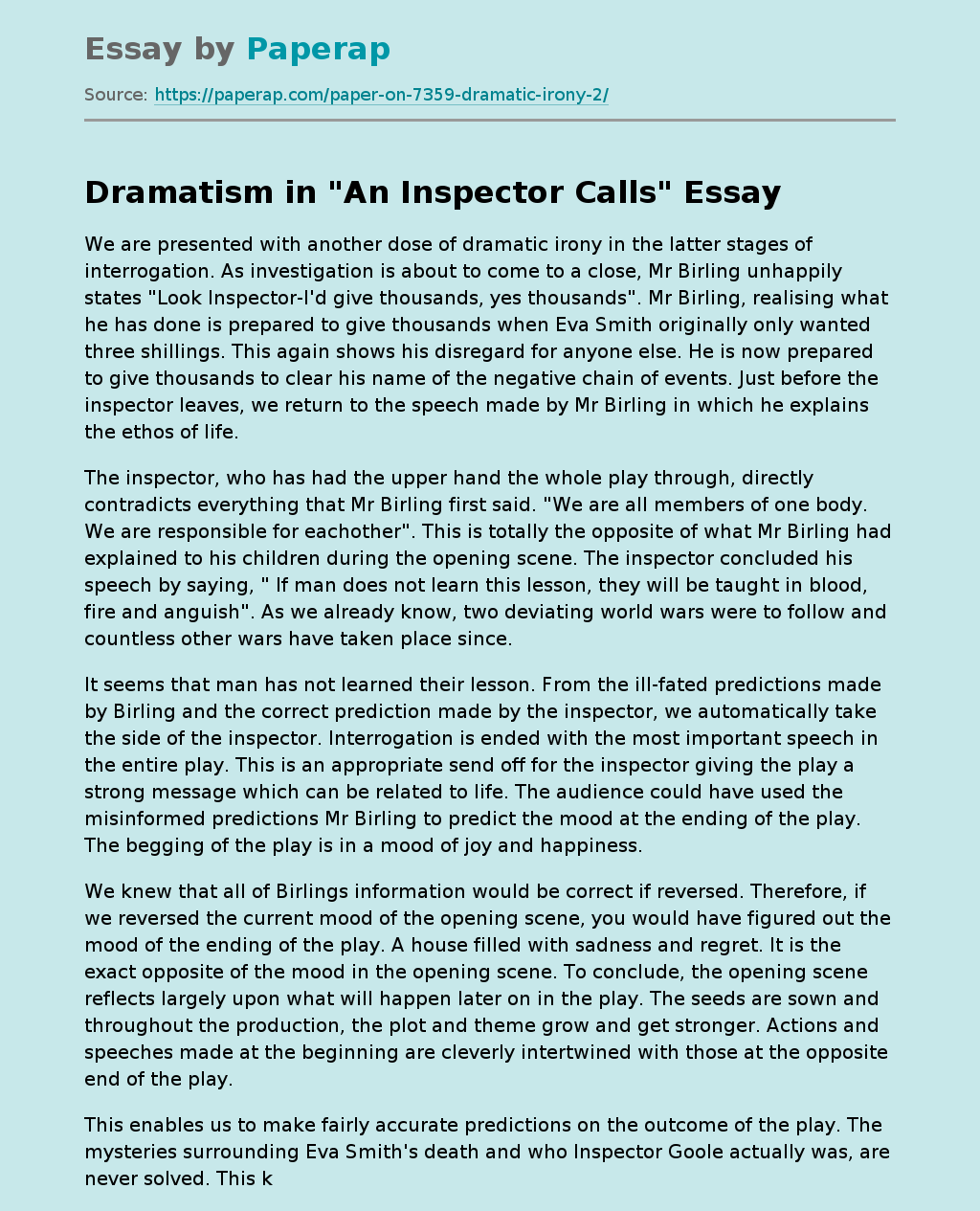Dramatism in "An Inspector Calls"
We are presented with another dose of dramatic irony in the latter stages of interrogation. As investigation is about to come to a close, Mr Birling unhappily states “Look Inspector-I’d give thousands, yes thousands”. Mr Birling, realising what he has done is prepared to give thousands when Eva Smith originally only wanted three shillings. This again shows his disregard for anyone else. He is now prepared to give thousands to clear his name of the negative chain of events. Just before the inspector leaves, we return to the speech made by Mr Birling in which he explains the ethos of life.
The inspector, who has had the upper hand the whole play through, directly contradicts everything that Mr Birling first said. “We are all members of one body. We are responsible for eachother”. This is totally the opposite of what Mr Birling had explained to his children during the opening scene. The inspector concluded his speech by saying, ” If man does not learn this lesson, they will be taught in blood, fire and anguish”.
As we already know, two deviating world wars were to follow and countless other wars have taken place since.
It seems that man has not learned their lesson. From the ill-fated predictions made by Birling and the correct prediction made by the inspector, we automatically take the side of the inspector. Interrogation is ended with the most important speech in the entire play. This is an appropriate send off for the inspector giving the play a strong message which can be related to life.
The audience could have used the misinformed predictions Mr Birling to predict the mood at the ending of the play. The begging of the play is in a mood of joy and happiness.
We knew that all of Birlings information would be correct if reversed. Therefore, if we reversed the current mood of the opening scene, you would have figured out the mood of the ending of the play. A house filled with sadness and regret. It is the exact opposite of the mood in the opening scene. To conclude, the opening scene reflects largely upon what will happen later on in the play. The seeds are sown and throughout the production, the plot and theme grow and get stronger. Actions and speeches made at the beginning are cleverly intertwined with those at the opposite end of the play.
This enables us to make fairly accurate predictions on the outcome of the play. The mysteries surrounding Eva Smith’s death and who Inspector Goole actually was, are never solved. This kept me thinking and guessing even after the production had concluded. Overall, the nature of the play and the subliminal clues placed for the audience allows us to foresee later actions of characters which can then use to help solve the crime ourselves. It is this that keeps the production mysterious, intriguing exciting and entertaining.
Dramatism in "An Inspector Calls". (2017, Oct 22). Retrieved from https://paperap.com/paper-on-7359-dramatic-irony-2/

